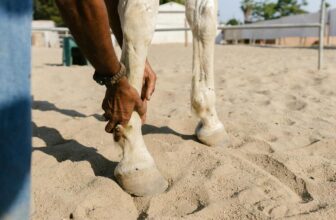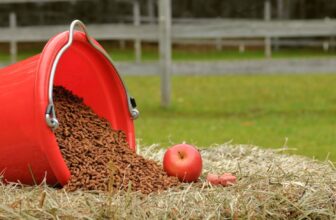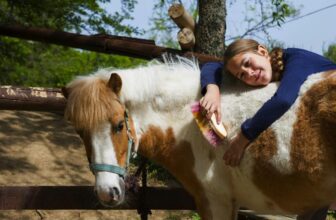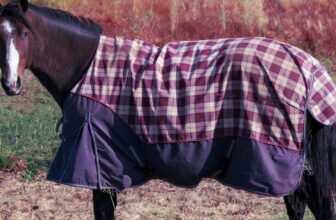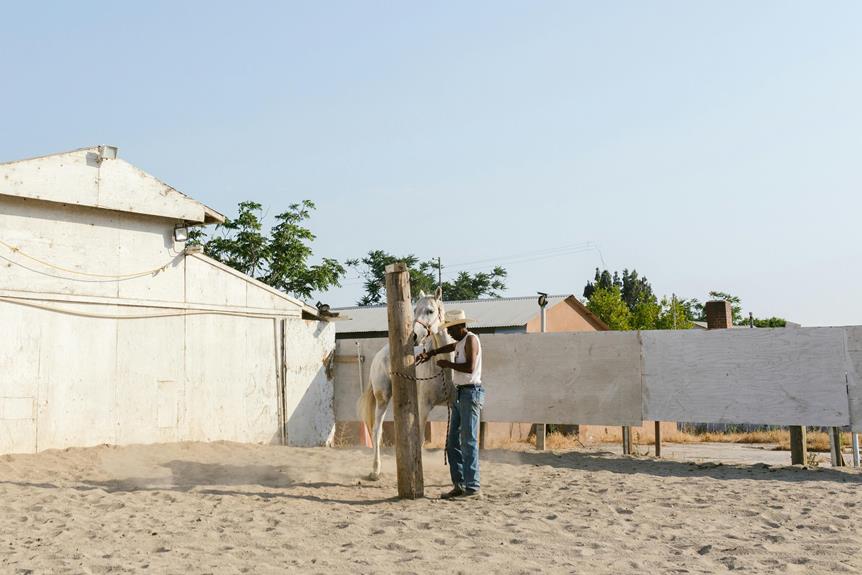
To create the ideal stable environment for your horse, you must consider various factors such as ventilation, cleanliness, safety, and comfort. Ensuring these elements are in place is not only beneficial for your horse's health and well-being but also impacts their performance and overall happiness. By paying attention to these essential aspects, you can provide your equine companion with a space that promotes their physical and mental health. But how exactly can you achieve this balance of elements to create a truly optimal environment for your horse?
Ventilation and Lighting
Ensure your horse's stable has proper ventilation and lighting to maintain a healthy environment. Adequate ventilation is crucial for your horse's respiratory health. Stagnant air can lead to respiratory issues and the accumulation of harmful ammonia from urine fumes. Install windows or vents that can be opened to allow fresh air to circulate, reducing the risk of respiratory problems.
Additionally, proper lighting is essential for your horse's well-being. Natural light helps regulate their circadian rhythm and can positively impact their mood and behavior. If natural light is insufficient, consider installing artificial lighting that mimics natural daylight patterns. This will help ensure your horse maintains a regular sleep-wake cycle and stays healthy.
Cleanliness and Hygiene
Maintaining cleanliness and good hygiene practices in your horse's stable is essential for preventing health issues and ensuring a comfortable living environment. Regularly mucking out your horse's stall, removing soiled bedding, and cleaning water and food containers are fundamental tasks.
Keeping the stable clean helps prevent the buildup of ammonia from urine, which can be harmful to your horse's respiratory system. Additionally, a clean environment reduces the risk of bacterial and fungal infections that thrive in dirty conditions.
Sweeping the aisles, tidying up grooming areas, and regularly disinfecting surfaces are also crucial steps in maintaining a hygienic stable. Proper manure management, such as disposing of waste in designated areas, is essential not only for hygiene but also to prevent parasite infestations.
Safety Measures
To promote a secure environment for your horse, implement essential safety measures within the stable. Start by ensuring that all fencing and gates are in good condition, free of sharp edges or protruding nails that could injure your horse. Regularly inspect the stable for any loose boards or potential hazards that could pose a risk to your horse's well-being. Adequate lighting is crucial, especially during early mornings or evenings, to prevent accidents and help your horse feel secure.
Additionally, keep all tools, equipment, and chemicals safely stored in designated areas away from the horse's reach. Securely fasten buckets and feed containers to prevent accidental spills that could lead to slipping or ingestion of harmful substances. Fire safety is paramount, so have fire extinguishers readily available and ensure all electrical wiring is up to code.
Lastly, establish an emergency plan and keep important contact numbers, such as your veterinarian and local animal control, easily accessible. By prioritizing safety measures in your stable, you create a protective environment where your horse can thrive.
Comfort and Well-being
For optimal comfort and well-being of your horse, prioritize providing a clean and spacious living area that allows for natural movement and relaxation. A tidy stable not only reduces health risks but also promotes a sense of calm for your horse.
Ensure proper ventilation to maintain air quality and regulate temperature, preventing respiratory issues and discomfort. Bedding should be soft, dry, and regularly changed to offer a cozy resting place and prevent sores. Access to fresh water at all times is crucial for hydration and digestion, contributing to your horse's overall wellness.
Offering ample space for your horse to move freely is essential for their physical and mental health. Regular turnout in a safe and secure paddock or pasture allows for exercise, socialization, and natural grazing habits.
Providing mental stimulation through toys or companionship can prevent boredom and behavioral issues, fostering a content and happy horse. By prioritizing these elements in your horse's living environment, you can ensure their comfort and well-being are always at the forefront.

